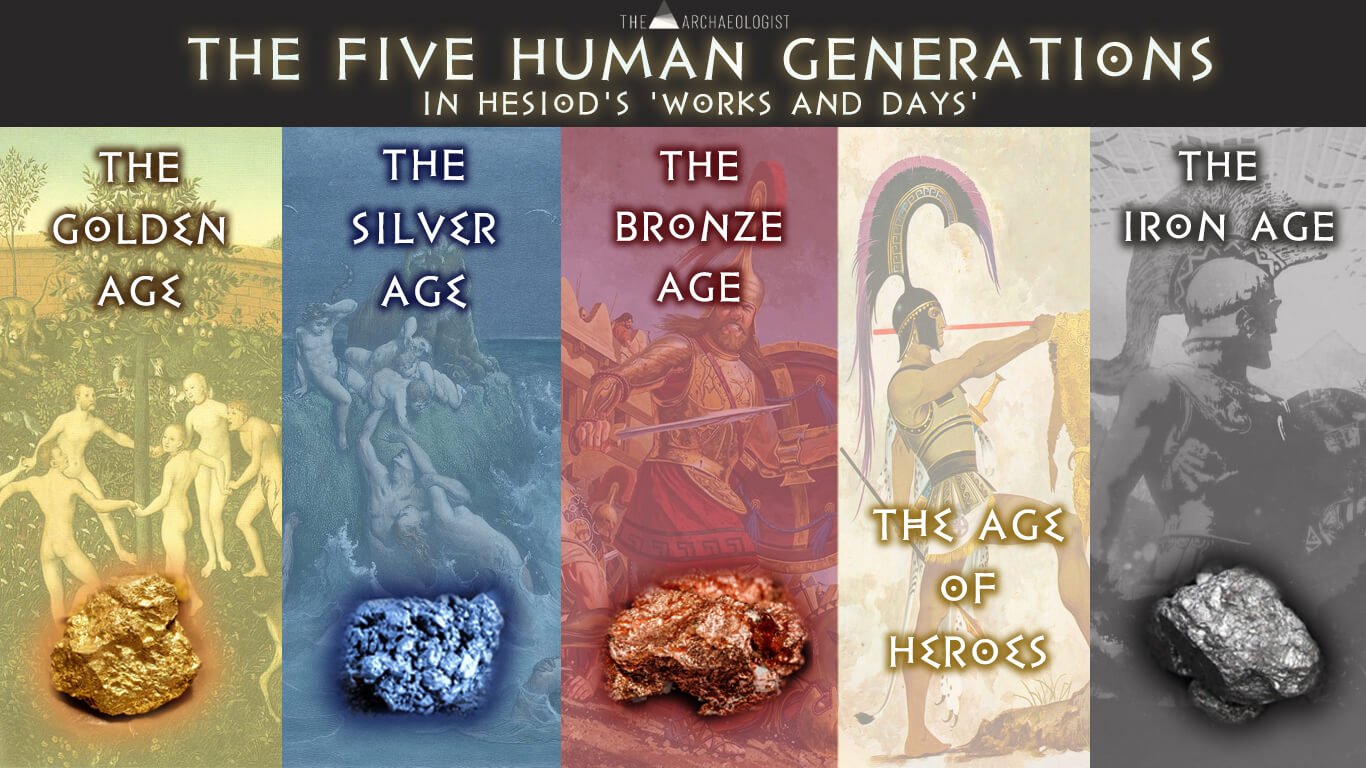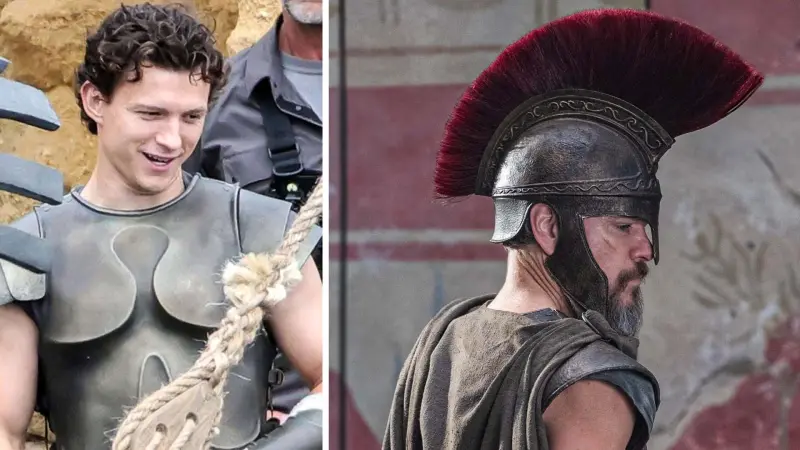BY THE ARCHAEOLOGIST EDITOR GROUP
The Ages of Man in Greek Mythology: Hesiod's Perspective
Greek mythology, with its intricate web of tales and legends, often provides profound insights into human nature and society's evolution. One of the most intriguing of these narratives is Hesiod's account of the "Ages of Man" as detailed in his work "Works and Days". This tale chronicles the successive eras of humankind, each defined by its own unique characteristics, virtues, and flaws.
Golden Age: Paradise Lost
The Golden Age signifies the pinnacle of human existence, where peace and prosperity reigned supreme. Mankind lived in harmony, untouched by labor or sorrow, and the earth spontaneously yielded its fruits. The inhabitants of this age were said to be molded by the gods themselves and lived like them — free from worries, old age, or conflict. When their time came, they gently passed away, becoming benevolent spirits that roamed the earth.
Silver Age: The Decline Begins
Though still a prosperous era, the Silver Age marks a decline from the previous age's perfection. The men of this age were created by the gods to be inferior to their golden predecessors. They lived as children for a hundred years, looked after by their mothers. Upon reaching adulthood, they lived briefly, often succumbing to their own folly and ignorance. These men did not honor the gods, leading Zeus to bury them, but they too had an afterlife as spirits, albeit less exalted than those of the Golden Age.
Bronze Age: Age of War and Valor
Born from ash trees, the men of the Bronze Age were formidable, aggressive, and robust. Their hearts were as hard as the metal they were named after, and they took pride in their strength and combat prowess. Though they enjoyed the fruits of the earth, their lives were dominated by warfare and conflict. Their own violent tendencies led to their ultimate destruction, and they found no afterlife, being consigned to the "dank house of Hades."
Heroic Age: A Brief Respite
Unlike the other ages, the Heroic Age wasn't a product of natural succession but rather an interlude in the narrative. It was an era of demigods and heroes, who took part in great adventures and fought in significant wars like the Trojan War and Thebes' adventures. Many of these heroes found eternal life on the Isles of the Blessed, enjoying an existence similar to the Golden Age.
Iron Age: The Descent into Strife
Hesiod himself believed he lived in the Iron Age, an era marked by toil, sorrow, and decline in divine influence. Men labored hard, facing the wrath of the seasons, and were burdened by injustice and wickedness. The bonds of hospitality and love weakened, replaced by betrayal and mistrust. Hesiod foretold that this age would continue to deteriorate until humanity's inherent goodness disappeared, prompting Zeus to destroy this race as he had others.
Hesiod's "Ages of Man" paints a cyclical view of human history, oscillating between periods of prosperity and decay. While it offers a moralistic interpretation of human development, it also encapsulates the ancient Greeks' understanding of their world — a combination of divine intervention and human nature. Through the prism of these ages, we gain insights into not just ancient beliefs but also the perennial issues that have fascinated and challenged humanity throughout time.







